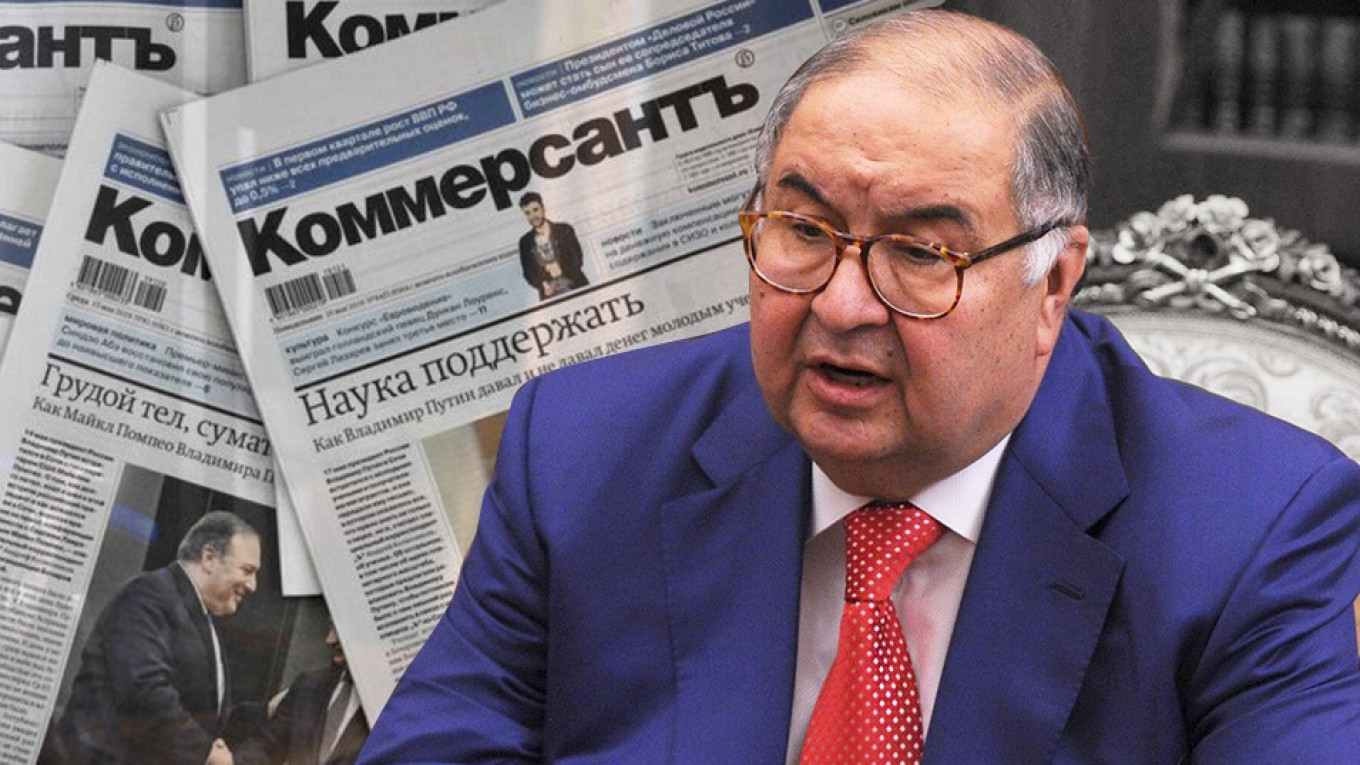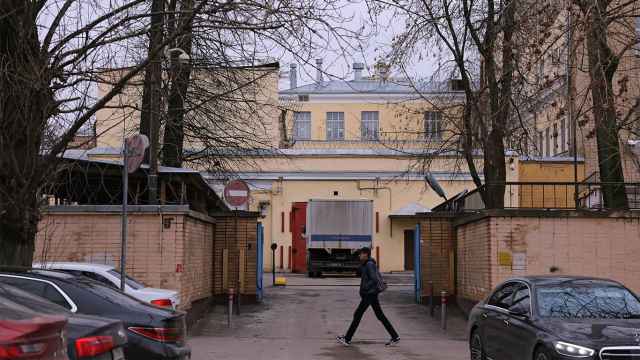Eight years ago I worked for the Gazeta.ru outlet, part of the Kommersant publishing house. Back then, it was one of the coolest media in Russia: It had a huge readership, was quoted more than any other news source, was known for its spirited editorial style and imposed no political or other restrictions on its journalists.
Then one day I saw the chief editor approach the head of the news department with the following demand:
“Where is the news about the World Fencing Championship?”
“The what?” The department head wasn’t sure whether the chief editor was joking. It was a ridiculous request for a site focused on social and political news.
“The World Fencing Championship just finished in Italy and 11 sets of medals were awarded,” the chief editor began explaining patiently. “Now think: who heads the Fencing Federation?”
The department head thought for a few moments, a light went on and he quickly said:
“Okay, sure. The news will be coming right up.”
It turned out that the head of the International Fencing Federation was none other than Kommersant co-owner and billionaire Alisher Usmanov. Of course, while Gazeta is meant to serve the interests of its millions of readers, if the co-owner happens to discover that his favorite sport has not received any coverage, he might get very upset.
Thus, Gazeta.ru enjoyed nearly total freedom, but it had to kowtow on the little things — reporting on the International Fencing Championship once a year and taking a very cautious approach to all things concerning the telecom company Megafon — a key Usmanov asset.
This all came to a quick end, however. Three days before the State Duma elections of 2011, the Gazeta.ru Deputy Editor-in-Chief Roman Badanin, who was responsible for political reporting was fired. Serious public unrest erupted in Moscow: Immediately after those elections, a hundred thousand protestors rallied on Bolotnaya Ploshchad and the Kremlin began "cleansing" the newspaper’s internet content — stuff it seemed to have not even noticed before that moment.
Usmanov’s fortune amounted to $17 billion at the time and Gazeta.ru represented a very small portion of that total, in terms of monetary value.
However, that microscopic asset had the potential to create enormous problems for the rest of Usmanov’s billions. Specifically, I recall that the Kremlin’s irritation with the newspaper’s reporting resulted in threats that the oligarch could lose control over his valuable iron ore deposit.
Owning respectable media such as RBC, Vedomosti or Kommersant is usually unprofitable. Usmanov manages to keep Kommersant afloat artificially, by having his other assets advertise with the paper.
More often than not, however, such publications produce more problems than profit. All it takes is for one obscure journalist on the staff to write a blistering exposé and the Presidential Administration calls the chief editor on the carpet.
Nor is it easy anymore to use such media to protect your business. Journalists are quick to complain about illegal pressure on the editor or encroachments on freedom of speech. If the owner prohibits the publication of a particular article, a scandal results, and if he dictates what journalists can or cannot cover, employees will either quit or cry out about censorship, hurting the publication’s reputation.
Why would someone even want to own such a publication? Perhaps, now, nobody does.
Owning a reputable news source in today’s Russia is like being the market leader in VHS cassette sales or a manufacturer of pagers. What’s the point?
The solution to the PR problem for the oligarch owners of media came with the appearance of anonymous channels on the Telegram messaging service.
A perfect example of this occurred about 10 days ago, after a Russian Superjet 100 crashed at Sheremetyevo airport. One-half of Telegram’s channels were filled with posts paid for by Aeroflot in which the company blamed the Federal Air Transportation Agency for the crash, while that Agency paid for posts to the other half of the channels blaming Aeroflot.
The Telegram channels reach an audience as large as that of traditional media, but unlike journalists, they agree to publish paid posts without any bickering or questions.
The mass resignation of Kommersant’s entire political department is remarkable — not because it happened, but because it happened only now. The publication could produce objective reporting only as long as the Presidential Administration — that holds the newspaper’s owner on a short leash — permitted it to. That freedom narrowed continually over the last 10 years.
The only surprising thing is that some good, independent journalists continued to work there — and that several still do.
A good business press cannot serve as a lackey, but no potential owner has need of anything else.
And yet, Kommersant continues to publish for an irrational but understandable reason.
Several days ago, the remaining Kommersant journalists published an open letter to readers on Facebook in which they explained that the newspaper was at risk of getting shut down and would be unable to cover political topics for now.
More than 200 employees signed the letter, but the signature of the single most famous Kommersant employee, Andrei Kolesnikov, was missing. Kolesnikov, who is the personal chronicler of Vladimir Putin’s life, has written humorous articles about the leader almost daily since 1999.
His articles paint a picture of a sharp-witted and clever ruler surrounded by fussing, mischievous officials.
Putin himself reads the stories, so, as long as those articles appear, the newspaper will survive. In effect, this makes Kommersant a newspaper by a single author writing for a single reader.
And that makes it no better than the story about the World Fencing Championships.
A Message from The Moscow Times:
Dear readers,
We are facing unprecedented challenges. Russia's Prosecutor General's Office has designated The Moscow Times as an "undesirable" organization, criminalizing our work and putting our staff at risk of prosecution. This follows our earlier unjust labeling as a "foreign agent."
These actions are direct attempts to silence independent journalism in Russia. The authorities claim our work "discredits the decisions of the Russian leadership." We see things differently: we strive to provide accurate, unbiased reporting on Russia.
We, the journalists of The Moscow Times, refuse to be silenced. But to continue our work, we need your help.
Your support, no matter how small, makes a world of difference. If you can, please support us monthly starting from just $2. It's quick to set up, and every contribution makes a significant impact.
By supporting The Moscow Times, you're defending open, independent journalism in the face of repression. Thank you for standing with us.
Remind me later.








